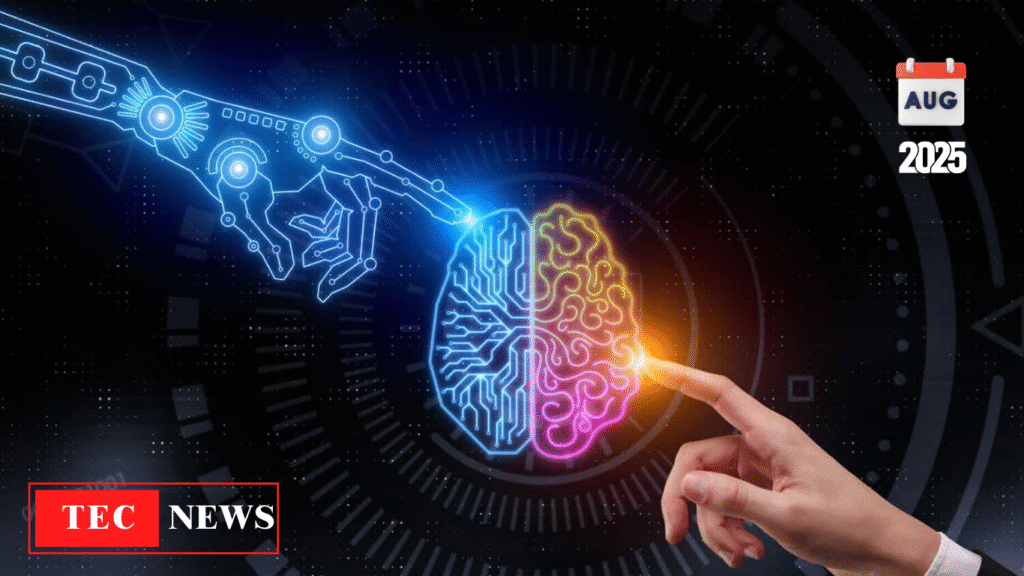I don’t know about you, but August felt like one of those months where every other day the AI world dropped a bombshell. From Google and OpenAI to governments and universities, it seemed like everyone wanted a piece of the spotlight.
Here’s my breakdown of what stood out—and why it matters.
Google’s Gemini Ultra 2 Changes the Game
Google kicked things off with Gemini Ultra 2, its flashiest model yet. It doesn’t just “do text”—it works across images, audio, and more, and the results look sharp. Early reports even show it beating GPT-4 in some areas. What’s interesting is how quickly Google’s plugging it into search and productivity apps. You might already be using it without realizing.
OpenAI Builds for Teams
Meanwhile, OpenAI is thinking less about individuals and more about workplaces. Their new ChatGPT Business Hub is like a central control panel for teams—shared spaces, permissions, usage monitoring. It feels like OpenAI’s way of saying: “AI isn’t just a cool tool, it’s part of your 9-to-5 now.”
Meta Wants to Put You Into Chats
Meta started testing AI avatars on WhatsApp and Instagram. Imagine sending a mini-animated version of yourself that reacts to texts or even mirrors your expressions. Some people will love it. Others will roll their eyes. Either way, it’s a step closer to AI being woven into how we communicate every day.
India Lays Down Its AI Strategy
Here’s a big one: India’s IT Ministry is drafting a National AI Strategy Framework. It’s all about responsible use, upskilling, and making sure AI innovation happens at scale. If it plays out the way they plan, India could become a real heavyweight in the global AI race.
Stanford Tackles the “Should We?” Question
Amid all the hype, Stanford dropped something refreshing—a free AI ethics course. It’s open to everyone: developers, researchers, policymakers, you name it. I love this move, because while everyone’s racing ahead with “what AI can do,” someone needs to pause and ask “what AI should do.”
Big Money, Bigger Infrastructure
The money didn’t stop flowing this month:
- Cohere raised a cool $500M to scale enterprise tools.
- Google is investing $9B into Oklahoma data centers (renewables included).
- TCS opened a new AI-driven operations hub in Latin America.
It’s not just about models anymore—it’s about building the pipes and power to run them.
Science, Security, and a Bit of Controversy
On the science front, researchers unveiled a deepfake detector with 98% accuracy. Huge win for fighting misinformation. At the same time, AI-powered helicopters and surveillance systems rolled out in Texas, sparking heated debates about privacy. And the Allen Institute for AI got $152M to double down on open-source research—proof that collaboration still matters in this race.
The Heavyweights Keep Sparring
Microsoft, Apple, and Anthropic all made moves:
- Microsoft integrated OpenAI’s latest models everywhere—365, GitHub, Azure.
- Apple unveiled AKI, a private on-device AI answer engine. That’s Apple being very Apple: sleek, private, and maybe game-changing.
- Anthropic kept pushing Claude Opus deeper into enterprise use cases.
Safe to say, the competition isn’t slowing down.
Governments & Education Step Up
The US government officially approved AI tools like ChatGPT and Gemini for federal agencies—a sign that AI’s going mainstream in public service. Meanwhile, in the UK, Debenhams launched the country’s biggest retail AI skills academy. The common thread? Not just building AI, but teaching people how to use it.
So, Why Did August 2025 Matter?
This wasn’t just another month of tech news. August felt like a turning point. We saw countries sketch out their national strategies, companies put billions into infrastructure, and schools and universities making sure people are ready for what’s coming.
If you’re building with AI, leading a business, or just curious about where all this is going—you can feel the momentum. Personally, I think this is still just the warm-up.
The real question is: what happens next?



